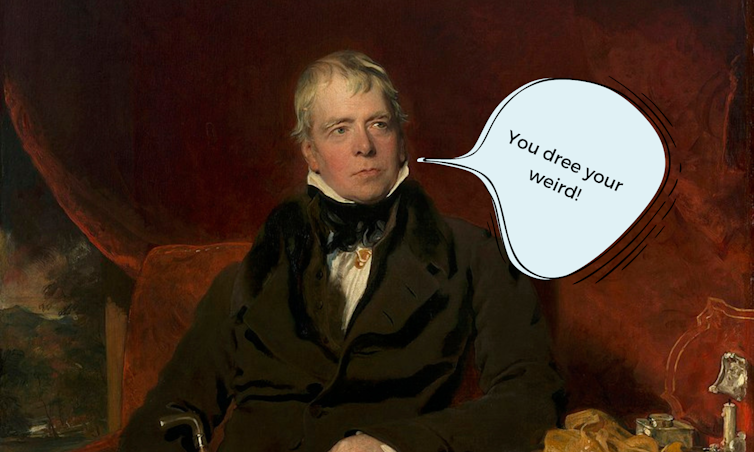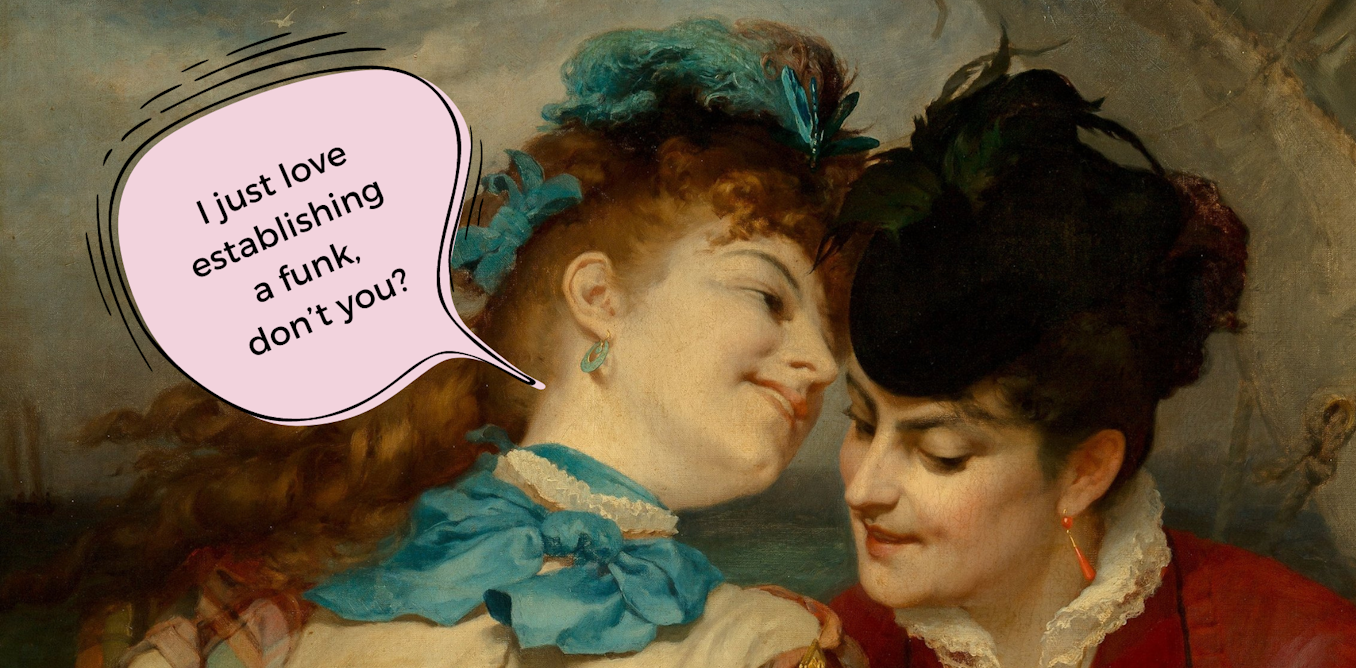All Gen Z slang might sound like “skibidi” to older generations, but every era has had its own confusing slang. For every “gyatt” today (originally a variation of “god damn”, now referring to a curvy woman) there was a “dog my cats” or “od’s fish” in the Victorian era (both also meant something like “god damn”).
Today’s “cake” (buttocks) was the “behindativeness” of that period. In fact, from the bizarre sense of humour apparent in their Christmas cards – depicting murderous frogs, mice riding lobsters, and even waltzing beetles – to the off-beat slang they used, the Victorians defy their stuffy reputation. There’s an absurdism in their language and witticisms that feels surprisingly modern.
The funny and irreverent “got the morbs” (feeling down, temporary sadness, from a shortening of “morbid”) again demonstrates that the Victorians were more like us than we might like to believe. They even had a term for fake news (“evening wheezes”, referring to the tabloid papers sold at night). Many of these words and phrases can be found in Passing English of the Victorian Era: a Dictionary of Heterodox English, Slang and Phrase, by James Redding Ware (1909).
Here are some more great ones that you could incorporate into your daily speech:
1. ‘Acknowledge the corn’ or ‘confess the corn’
No one is sure where this phrase initially came from, but it was used to mean admitting to wrongdoing (“yes, I acknowledge the corn, I messed up”). Later in the Victorian period, it was also used to admit to a minor infraction to distract from a major one (“I acknowledge the corn, I texted that girl, but nothing else happened.”).
Here, the etymology points to a case of horse-theft in the wild west. A man accused of stealing four horses and four feeds of corn said: “I acknowledge the corn, but do not admit to the horses.”
2. ‘Dree your weird’
The word “weird” is suddenly all over the US news, after the Democrat VP nominee Tim Walz lobbed the insult at the Republican candidates Donald Trump and J.D. Vance.
But in the Victorian phrase “dree your weird”, the word doesn’t mean strange but rather fate or destiny, while “dree” means to suffer or endure. This phrase, then, means to surrender to fate.

Wikimedia, CC BY
Taken from the Scots, this phrase was popularised by the writer Sir Walter Scott. If you “dree your weird”, you accept things as they are, or accept the consequences of your actions. With the cadence of “match my freak” (be equally as weird) and the incomprehensibility of “skibidi”, this phrase is ripe for incorporation into today’s vocabulary. I suggest you use it when scolding the friend that won’t accept that actions have consequences.
3. ‘Establish a funk’
In the 19th century, “funk” was used to refer to the panicked state of schoolboys facing difficult exams or coursework. To “establish a funk” is to deliberately create a panic or stir up agitation. This phrase became common enough that it was used in parliament in 1920, with the MP Francis Dyke Acland suggesting a need to “establish a funk” in the government accounting departments, stirring up some panic over their expenditures and bookkeeping.
Modern media could be accused of establishing a funk in the public. Your friend who likes to stir things up for the sake of drama is also guilty of such behaviour.
4. ‘Podsnappery’
Taken from the character Mr Podsnap in Charles Dickens’ 1865 novel, Our Mutual Friend, podsnappery is the belief that everything you do is right, while everything everyone else does is wrong. You are refusing to admit to the problems in the world or your own privilege.
Dickens tells us that:
Mr Podsnap was well to do, and stood very high in Mr Podsnap’s opinion … He never could make out why everybody was not quite satisfied, and he felt conscious that he set a brilliant social example in being particularly well satisfied with most things, and, above all other things, with himself.
A nepo baby (a person who has benefited from nepotism) who won’t admit their advantage in life might be said to be practising some podsnappery.
5. ‘Ugsome’
This word sounds close to the exclamation “ugh” and the word “loathsome”, which together translate to today’s “gave me the ick” (meaning when a previous source of affection takes on a gross or loathsome quality). However, the Victorians used “ugsome” to mean something frightening in addition to loathsome, with its root in the Old Norse “ugga” meaning “to dread”.
A bad part of town could be ugsome, but it could also be applied to the more mundane things we dread in modern times. For many a millennial or gen Z, making phones calls is also ugsome; people should just text instead.

Looking for something good? Cut through the noise with a carefully curated selection of the latest releases, live events and exhibitions, straight to your inbox every fortnight, on Fridays. Sign up here.

